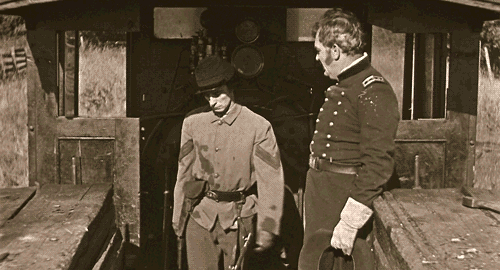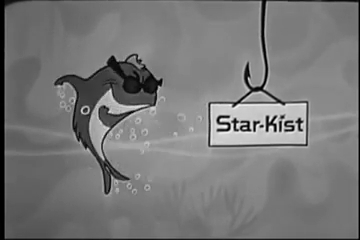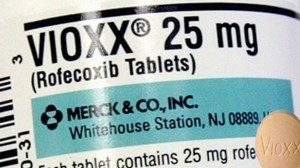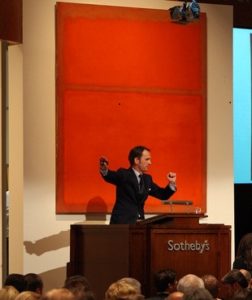 Among other holdings in a breach-of-warranty dispute about an aircraft engine, the Fifth Circuit reversed a finding that the manufacturer breached an express warranty by not repairing the engine in a timely manner. Because, under Texas law, “courts will not rewrite agremeents to insert provisions parties could have included,” “time is not of the essence of a contract unless the contract explicitly makes it so . . . .” Becker v. Continental Motors, Inc., No. 16-10166 (Oct. 3, 2017).
Among other holdings in a breach-of-warranty dispute about an aircraft engine, the Fifth Circuit reversed a finding that the manufacturer breached an express warranty by not repairing the engine in a timely manner. Because, under Texas law, “courts will not rewrite agremeents to insert provisions parties could have included,” “time is not of the essence of a contract unless the contract explicitly makes it so . . . .” Becker v. Continental Motors, Inc., No. 16-10166 (Oct. 3, 2017).
Category Archives: Contracts
 In a reminder of the surprising complexity that can surround litigation about a party’s standing to bring a claim, in Intrepid Ship Mgmnt v. Malin Int’l Ship Repair, the Fifth Circuit noted a source of potential confusion about the applicable procedure: “Although a dismissal for lack of standing is appropriately judged under Federal Rule of Civil Procedure 12(b)(1), which allows a court to make limited findings of fact, the parties have argued this case under the standards applicable to ordinary summary judgment motions. Compare Lane v. Halliburton, 529 F.3d 548, 557 (5th Cir. 2008) (explaining that the district court can resolve disputed facts as necessary to decide a challenge to subject atter jurisdiction), withInt’l Marine LLC v. Integrity Fisheries, Inc., 860 F.3d 754, 759 (5th Cir. 2017) (applying de novo review to summary judgment cases, explaining that “[s]ummary judgment is appropriate when ‘there is no genuine dispute as to any material fact.’”)”. No. 16-41074 (Oct. 11, 2017) (unpublished).
In a reminder of the surprising complexity that can surround litigation about a party’s standing to bring a claim, in Intrepid Ship Mgmnt v. Malin Int’l Ship Repair, the Fifth Circuit noted a source of potential confusion about the applicable procedure: “Although a dismissal for lack of standing is appropriately judged under Federal Rule of Civil Procedure 12(b)(1), which allows a court to make limited findings of fact, the parties have argued this case under the standards applicable to ordinary summary judgment motions. Compare Lane v. Halliburton, 529 F.3d 548, 557 (5th Cir. 2008) (explaining that the district court can resolve disputed facts as necessary to decide a challenge to subject atter jurisdiction), withInt’l Marine LLC v. Integrity Fisheries, Inc., 860 F.3d 754, 759 (5th Cir. 2017) (applying de novo review to summary judgment cases, explaining that “[s]ummary judgment is appropriate when ‘there is no genuine dispute as to any material fact.’”)”. No. 16-41074 (Oct. 11, 2017) (unpublished).
 The parties in IQ Products Co. v. WD-40 Co.disputed whether an arbitration agreement was limited to “propane/butane-propelled produicts” or also “carbon dioxide-propelled products.” The party who prevailed in the arbitration relied mainly on the parties’ subsequent conduct to justify the broader reading, and the Fifth Circuit agreed (applying California law): “Considering . . . ‘the words used . . . as well as extrinsic evidence of such objective matters and the surrounding circumstances under which the parties negotiated [and] entered into the contract; the object, nature and subject matter of the contract; and the subsequent conduct of the parties . . . WD-40’s assertion is . . . not wholly groundless.” No. 16-20595 (Sept. 13, 2017).
The parties in IQ Products Co. v. WD-40 Co.disputed whether an arbitration agreement was limited to “propane/butane-propelled produicts” or also “carbon dioxide-propelled products.” The party who prevailed in the arbitration relied mainly on the parties’ subsequent conduct to justify the broader reading, and the Fifth Circuit agreed (applying California law): “Considering . . . ‘the words used . . . as well as extrinsic evidence of such objective matters and the surrounding circumstances under which the parties negotiated [and] entered into the contract; the object, nature and subject matter of the contract; and the subsequent conduct of the parties . . . WD-40’s assertion is . . . not wholly groundless.” No. 16-20595 (Sept. 13, 2017).
 Yahoo cancelled its contract with SCA related to a billion-dollar “perfect bracket contest” for 2014’s March Madness. The parties disputed the appropriate termination payment, defined in the contract as “50% of the fee” – Yahoo contending the “fee” was 50% of the $1.1 million deposit that it already paid SCA; SCA contending that the “fee” was the rull $11 million contract fee, credited for the deposit. The Fifth Circuit reversed and rendered judgment for SCA, noting that the contract “clear[ly] incorporated by reference two invoices that specified the $11 million figure,” and identifying several other contract provisions consistent with SCA’s reading. The issue of what documents comprise a contract, and the related legal issue of when a court may consider “parol” evidence, continues to be a frequent – if not the most frequent – point of disagreement between the Fifth Circuit and trial courts. SCA Promotions v. Yahoo!, No. 15-11254 (Aug. 21, 2017).
Yahoo cancelled its contract with SCA related to a billion-dollar “perfect bracket contest” for 2014’s March Madness. The parties disputed the appropriate termination payment, defined in the contract as “50% of the fee” – Yahoo contending the “fee” was 50% of the $1.1 million deposit that it already paid SCA; SCA contending that the “fee” was the rull $11 million contract fee, credited for the deposit. The Fifth Circuit reversed and rendered judgment for SCA, noting that the contract “clear[ly] incorporated by reference two invoices that specified the $11 million figure,” and identifying several other contract provisions consistent with SCA’s reading. The issue of what documents comprise a contract, and the related legal issue of when a court may consider “parol” evidence, continues to be a frequent – if not the most frequent – point of disagreement between the Fifth Circuit and trial courts. SCA Promotions v. Yahoo!, No. 15-11254 (Aug. 21, 2017).
 A recurring issue in contract litigation is whether a provision creates a “condition precedent” to the performance of other obligations. In Red Hook Communications I, LP v. On-Site Manager, Inc., the Fifth Circuit identified this provision as one that “plainly creates a condition precedent that both [parties] must comply with before either can bring suit (and thus, denying subject matter jurisdiction if it is not complied with): “[T]he Indemnifying Party and the Indemnified Party will, for a period of sixty (60) days following delivery of such objection, use good faith efforts to resolve the Dispute.” No. 16-11351 (July 3, 2017, unpublished).
A recurring issue in contract litigation is whether a provision creates a “condition precedent” to the performance of other obligations. In Red Hook Communications I, LP v. On-Site Manager, Inc., the Fifth Circuit identified this provision as one that “plainly creates a condition precedent that both [parties] must comply with before either can bring suit (and thus, denying subject matter jurisdiction if it is not complied with): “[T]he Indemnifying Party and the Indemnified Party will, for a period of sixty (60) days following delivery of such objection, use good faith efforts to resolve the Dispute.” No. 16-11351 (July 3, 2017, unpublished).
 Servisair bought a workers’ compensation policy from Liberty Mutual, “There is no dispute that Servisair significantly over-allocated payroll to clerical employees, which is a considerably less expensive classification.” Thus, after the payroll period ended and an audit concluded, Liberty Mutual billed Servisair for $3.6 million in additional premium. Servisair alleged a mistake in the “underlying factual basis” relied upon “in negotiating and agreeing to the policy,” but the Fifth Circuit sided with Liberty Mutual, noting that the policy expressly stated: “If the final premium is more than the premium [Servisair] paid to [Liberty Mutual], [Servisair] must pay [Liberty Mutual the balance.” In other words, “[t]his is an open-ended obligation with no limit on the amount of additional premium Servisair might ultimately owe.” In sum: “Servisair made a deal that, in retrospect, it did not like. That does not allow it to rewrite or avoid its obligations.” Liberty Mutual Ins. Co. v. Servisair, LLC, No. 16-20472 (June 27, 2017, unpublished).
Servisair bought a workers’ compensation policy from Liberty Mutual, “There is no dispute that Servisair significantly over-allocated payroll to clerical employees, which is a considerably less expensive classification.” Thus, after the payroll period ended and an audit concluded, Liberty Mutual billed Servisair for $3.6 million in additional premium. Servisair alleged a mistake in the “underlying factual basis” relied upon “in negotiating and agreeing to the policy,” but the Fifth Circuit sided with Liberty Mutual, noting that the policy expressly stated: “If the final premium is more than the premium [Servisair] paid to [Liberty Mutual], [Servisair] must pay [Liberty Mutual the balance.” In other words, “[t]his is an open-ended obligation with no limit on the amount of additional premium Servisair might ultimately owe.” In sum: “Servisair made a deal that, in retrospect, it did not like. That does not allow it to rewrite or avoid its obligations.” Liberty Mutual Ins. Co. v. Servisair, LLC, No. 16-20472 (June 27, 2017, unpublished).
 In ASARCO LLC v. Montana Resources, Inc., a case involving the interplay of a business’s bankruptcy with a later lawsuit for breach of contract by that business, the Fifth Circuit observed:
In ASARCO LLC v. Montana Resources, Inc., a case involving the interplay of a business’s bankruptcy with a later lawsuit for breach of contract by that business, the Fifth Circuit observed:
- “[A] declaratory claim on its own typically will not preclude future claims involving the same circumstances (as noted, issue preclusion may still apply to any declaration the court issues). But in a case involving both declaratory claims and ones seeking coercive relief, the former will not serve as an antidote that undoes the preclusive force that traditional claims would ordinarily have.” (applying the “seminal case” on the point, Kaspar Wire Works, Inc. v. Leco Engineering & Machine, Inc., 575 F.2d 530 (5th Cir. 1978))
- As to the damages claim, “ASARCO’s claim for failure to reinstate did not accrue until MRI rejected the tender in 2011. . . . ASARCO may or may not have attempted to cure, and MRI may or may not have denied ASARCO’s reinstatement. Because the present breach of contract claim was contingent on future events, ASARCO could not have brought it during the adversary proceeding.”
- For the same reasons, the plaintiff was not judicially estopped by allegedly inadequate disclosures during the earlier bankruptcy: “MRI cites no case requiring a party to disclose a potential claim for breach of contract when the contract had not yet been breached. This makes sense, because MRI’s position would require a debtor to scour its contracts looking for hypothetical claims that another party could maybe breach in the future.”
No. 16-40682 (June 2, 2017).
The common situtation of a loan modification raised two general issues – (1) given the princple that “all parts of a contract should be read so that none will be rendered meaningless,” the outcome is not clear if a modification has a signature line, when companied by “contratual language [that] indicated that once the [borrowers] performed, their loan would be modified automatically and [the servicer] would be bound by the Agreement” – and (2) given that the Statute of Frauds in Texas for loan agreements generally involves oral agreements or agreements that clearly require signature by both parties, it is not clear if “the written offer itself, along with the attached Modification Agreement” would satisfy that status. Owens v. Specialized Loan Servicing LLC, No. 16-20557 (June 5, 2017).
 The Fifth Circuit reversed a JNOV on liability for breach of contract in Kerr v. Mapei Corp., holding: “The jury was presented with two alternative, but plausible, accounts of the formation and authorization of a contract. The jury reasonably selected one of those alternatives.” As to consequential-type damages for lost profits for other sales, however, the Court affirmed the judgment for the defendants, finding that the plaintiff’s damages model “was not supported by any empirical analysis or any evidence outside of the [contract] relationship . . . (e.g., real-world sales, customer surveys, or current market demand).” In particular, it noted the lack of evidence that the substantial business opportunity related to the contract would recur, the fact that the contract was terminable at will, and the lack of weight for a party’s own “unsubstantiated, self-serving speculations” about future business. No. 16-10430 (June 30, 2017 (revised), unpublished).
The Fifth Circuit reversed a JNOV on liability for breach of contract in Kerr v. Mapei Corp., holding: “The jury was presented with two alternative, but plausible, accounts of the formation and authorization of a contract. The jury reasonably selected one of those alternatives.” As to consequential-type damages for lost profits for other sales, however, the Court affirmed the judgment for the defendants, finding that the plaintiff’s damages model “was not supported by any empirical analysis or any evidence outside of the [contract] relationship . . . (e.g., real-world sales, customer surveys, or current market demand).” In particular, it noted the lack of evidence that the substantial business opportunity related to the contract would recur, the fact that the contract was terminable at will, and the lack of weight for a party’s own “unsubstantiated, self-serving speculations” about future business. No. 16-10430 (June 30, 2017 (revised), unpublished).
 The Herculean effort of settling the many lost-profits claims related to the Deepwater Horizon accident led to a claims process described by the Fifth Circuit as follows – “Somewhat simplified, and more than somewhat condensed, the claims process works as follows: The Claims Administrator compares a claimant’s financial performance prior to and after the spill. If the former is greater than the latter, BP is liable for the difference.
The Herculean effort of settling the many lost-profits claims related to the Deepwater Horizon accident led to a claims process described by the Fifth Circuit as follows – “Somewhat simplified, and more than somewhat condensed, the claims process works as follows: The Claims Administrator compares a claimant’s financial performance prior to and after the spill. If the former is greater than the latter, BP is liable for the difference.
Causation is, in all other respects, presumed.”
Efforts to implement this process led to guidelines “requiring the Claims Administrator to move, smooth, or otherwise reallocate revenue for claimants engaged in construction, education, agriculture, and professional services. Claimants in these four industries tend to be paid in lump sums, which are capable of generating damages awards that do not comport with tort principles.”
Mindful that in an earlier dispute about these issues, the Court had reminded that “[i]n interpreting a settlement, surely some weight has to be given to what damages recoverable in civil litigation actually are,” the Court reversed the use of these particular guidelines: “[W]e decline to re-write the Settlement Agreement under the guise of contractualinterpretation. When we said . . . that the Claims Administrator should ‘process claims in accordance with economic reality,’ we assumed that doing so would comport with the text of the Settlement Agreement. . . . [, which] grants claimants the right to choose their own Compensation Period.” Lake Eugenie Land & Devel. v. BP, No. 15-30377 (May 23, 2017).
 Adams LLC, formed in July 2010, bought a number of assets from Adams Produce Company, Inc., and sought to prosecute a Deepwater Horizon claim for damages suffered by Adams Inc. Unfortunately, “[a]lthough substantially alll of Adams Inc.’s assets
Adams LLC, formed in July 2010, bought a number of assets from Adams Produce Company, Inc., and sought to prosecute a Deepwater Horizon claim for damages suffered by Adams Inc. Unfortunately, “[a]lthough substantially alll of Adams Inc.’s assets  and liabilities were transferred as part of the transaction, it is undisputed that Adams Inc. retained certain assets and liabilities. Adams Inc. and Adams LLC are two distinct entities, and the asset transfer that occurred here was not just a change in form.” BP Exploration v. Claimant ID 100169608, No. 16-30482 (March 8, 2017, unpublished).
and liabilities were transferred as part of the transaction, it is undisputed that Adams Inc. retained certain assets and liabilities. Adams Inc. and Adams LLC are two distinct entities, and the asset transfer that occurred here was not just a change in form.” BP Exploration v. Claimant ID 100169608, No. 16-30482 (March 8, 2017, unpublished).
 The owner of the Golden Nugget casino in Lake Charles withheld $18.7 million from payments to its general contractor, who then filed a statutory lien (a “privilege” in Louisiana parlance) on the property. The relevant statute requires the contractor to file “within sixty days after the filing of the notice of termination or substantial completion of the work.” If “substantial completion” refers to an event, the contractor’s filing was not timely; if, however, it refers to a filing that certifies substantial completion, the contractor’s filing was timely, as the owner did not record such a certification. The Fifth Circuit concluded that, while the statute was ambiguous, the related provisions and the apparent industry practice supported the contractor’s position: “The [statute] places the burden on an owner to cut of potential claims when a contract has been recorded, whether it is a general contractor or a subcontractor.” Golden Nugget Lake Charles LLC v. W.G. Yates & Sons Constr. Co., No. 16-30496 (March 6, 2017).
The owner of the Golden Nugget casino in Lake Charles withheld $18.7 million from payments to its general contractor, who then filed a statutory lien (a “privilege” in Louisiana parlance) on the property. The relevant statute requires the contractor to file “within sixty days after the filing of the notice of termination or substantial completion of the work.” If “substantial completion” refers to an event, the contractor’s filing was not timely; if, however, it refers to a filing that certifies substantial completion, the contractor’s filing was timely, as the owner did not record such a certification. The Fifth Circuit concluded that, while the statute was ambiguous, the related provisions and the apparent industry practice supported the contractor’s position: “The [statute] places the burden on an owner to cut of potential claims when a contract has been recorded, whether it is a general contractor or a subcontractor.” Golden Nugget Lake Charles LLC v. W.G. Yates & Sons Constr. Co., No. 16-30496 (March 6, 2017).
 In Richard v. Anadarko Petroleum Corp., the Fifth Circuit required reformation of a contract on the grounds of mutual mistake, to the detriment of non-party Liberty Mutual, acknowledging that “[c]ourts must guard against parties’ ‘attempts to make an end-run around the parol-evidence rule,’ which forecloses the use of parol evidence to interpret unambiguous terms, ‘by framing [their] argument[s] as a request for reformation.” Here, reformation was appropriate even considering the effect on Liberty Mutual, given (1) its lack of reliance on the contract, (2) the general consistency of the terms in the reformed contract with industry practice, and (3) course of performance. No. 16-30216 (March 2, 2017).
In Richard v. Anadarko Petroleum Corp., the Fifth Circuit required reformation of a contract on the grounds of mutual mistake, to the detriment of non-party Liberty Mutual, acknowledging that “[c]ourts must guard against parties’ ‘attempts to make an end-run around the parol-evidence rule,’ which forecloses the use of parol evidence to interpret unambiguous terms, ‘by framing [their] argument[s] as a request for reformation.” Here, reformation was appropriate even considering the effect on Liberty Mutual, given (1) its lack of reliance on the contract, (2) the general consistency of the terms in the reformed contract with industry practice, and (3) course of performance. No. 16-30216 (March 2, 2017).
 Heniff Transportation, a trucking company, sued Trimac Transportation, alleging that Trimac did not properly clean a tanker-trailer, resulting in contamination and a damages claim against Heniff by its customer. Trimac argued that Heniff’s state law claims were preempted by the Carmack Amendment, a federal law that addresses actions about lost or damaged goods, arising from interstate transportation of the goods by a common carrier. The Fifth Circuit agreed, finding that washing a tanker-trailer was “plainly” such a service, directly analogous to specific examples given by the statute. This statute, not widely known outside trucking litigation, can bear significantly on UCC claims involving transported goods. Heniff Transportation v. Trimac Transportation, No. 16-40553 (Jan. 30, 2017).
Heniff Transportation, a trucking company, sued Trimac Transportation, alleging that Trimac did not properly clean a tanker-trailer, resulting in contamination and a damages claim against Heniff by its customer. Trimac argued that Heniff’s state law claims were preempted by the Carmack Amendment, a federal law that addresses actions about lost or damaged goods, arising from interstate transportation of the goods by a common carrier. The Fifth Circuit agreed, finding that washing a tanker-trailer was “plainly” such a service, directly analogous to specific examples given by the statute. This statute, not widely known outside trucking litigation, can bear significantly on UCC claims involving transported goods. Heniff Transportation v. Trimac Transportation, No. 16-40553 (Jan. 30, 2017).
 NNN Realty disputed its obligations under a guaranty, noting that the definition of “borrower” in the instrument listed sixteen entities (all of which contained “NNN” in some fashion), concluding with the conjunction “and.” Thus, argued NNN, all of those entities had to be in default to trigger its obligations. The Court rejected this argument, noting the overall structure of the guaranty and related security instrument, as well as the usage of similar terms. It gave little weight to textual arguments about the definition that arose from a misplaced parenthetical. While many of the grammatical arguments – especially as to the the erroneous parenthetical – are unique to the facts of this case, the broader analysis about the interplay between a collectively-defined term and individual obligations applies in many business settings. WBCMT 2007 C33 Office 9720, LLC v. NNN Realty Advisors, Inc., No. 15-20086 (Dec. 22, 2016).
NNN Realty disputed its obligations under a guaranty, noting that the definition of “borrower” in the instrument listed sixteen entities (all of which contained “NNN” in some fashion), concluding with the conjunction “and.” Thus, argued NNN, all of those entities had to be in default to trigger its obligations. The Court rejected this argument, noting the overall structure of the guaranty and related security instrument, as well as the usage of similar terms. It gave little weight to textual arguments about the definition that arose from a misplaced parenthetical. While many of the grammatical arguments – especially as to the the erroneous parenthetical – are unique to the facts of this case, the broader analysis about the interplay between a collectively-defined term and individual obligations applies in many business settings. WBCMT 2007 C33 Office 9720, LLC v. NNN Realty Advisors, Inc., No. 15-20086 (Dec. 22, 2016).
 Two manufacturers of baby products (specifically, pacifiers and “sippy cups”), disputed the enforcement of a contract provision that said: “Distributor hereby acknowledges and agrees not to copy or utilize any of LNC’s . . . product design . . . without LNC’s written permission.” While “the district court imposed the requirement that the design be either confidential or protectable as intellectual property in order to fall within the definition of ‘product design,'” the Fifth Circuit disagreed and reversed because of the plain meaning of the terms chosen by the parties: “On its face, the clause applies to any of LNC’s product designs, which would include those in the public domain.” The court rejected arguments based on analogies and appeals to principles of (non-contractual) intellectual property law. Luv N’ Care, Ltd. v. Gruopo Rimar, No. 16-30039 (Dec. 16, 2016).
Two manufacturers of baby products (specifically, pacifiers and “sippy cups”), disputed the enforcement of a contract provision that said: “Distributor hereby acknowledges and agrees not to copy or utilize any of LNC’s . . . product design . . . without LNC’s written permission.” While “the district court imposed the requirement that the design be either confidential or protectable as intellectual property in order to fall within the definition of ‘product design,'” the Fifth Circuit disagreed and reversed because of the plain meaning of the terms chosen by the parties: “On its face, the clause applies to any of LNC’s product designs, which would include those in the public domain.” The court rejected arguments based on analogies and appeals to principles of (non-contractual) intellectual property law. Luv N’ Care, Ltd. v. Gruopo Rimar, No. 16-30039 (Dec. 16, 2016).
 Plaintiff sued Defendant for breach of contract, alleging a failure to deliver Defendant’s 2010 cotton crop to Plaintiff. Defendant contended that an anticipatory repudiation occurred. The Fifth Circuit reminded that the proposal of new contract terms, absent a statement of intent not to perform the present contract, does not create an anticipatory repudiation. As a counterpoint, the Court cited a Texas appellate case in which the appellant not only proposed new terms, but also “‘definitely manifested’ that he would not longer perform the terms of his original contract when he . . . drove the appellee out to a deserted county road, threatened to sue him, [and] stated that he was ‘mad enough to smash the appellee’s face in.'” Plains Cotton Cooperative Ass’n v. Gray, No. 16-10806 (Dec. 5, 2016) (unpublished).
Plaintiff sued Defendant for breach of contract, alleging a failure to deliver Defendant’s 2010 cotton crop to Plaintiff. Defendant contended that an anticipatory repudiation occurred. The Fifth Circuit reminded that the proposal of new contract terms, absent a statement of intent not to perform the present contract, does not create an anticipatory repudiation. As a counterpoint, the Court cited a Texas appellate case in which the appellant not only proposed new terms, but also “‘definitely manifested’ that he would not longer perform the terms of his original contract when he . . . drove the appellee out to a deserted county road, threatened to sue him, [and] stated that he was ‘mad enough to smash the appellee’s face in.'” Plains Cotton Cooperative Ass’n v. Gray, No. 16-10806 (Dec. 5, 2016) (unpublished).
 The plaintiff in Isner v. Seeger Weiss LLP alleged that counsel misrepresented the compensation that she would receive under a large Vioxx settlement. The defendants won; two features of the master settlement agreement were particularly important. First, it said that claimants would receive a payment under “criteria to be determined by the Claim Administrator” and “according to guidelines to be established by the Claims
The plaintiff in Isner v. Seeger Weiss LLP alleged that counsel misrepresented the compensation that she would receive under a large Vioxx settlement. The defendants won; two features of the master settlement agreement were particularly important. First, it said that claimants would receive a payment under “criteria to be determined by the Claim Administrator” and “according to guidelines to be established by the Claims
Administrator” — thus, “the method of calculation was . . . specifically reserved for
the decision of the Claims Administrator at a later date.” Second, under the heading “NO GUARANTEE OF PAYMENT,” the release said: “I FURTHER ACKNOWLEDGE THAT I UNDERSTAND THIS RELEASE AND THE AGREEMENT AND THAT THERE IS NO GUARANTEE THAT I WILL RECEIVE ANY SETTLEMENT PAYMENT OR, IF ANY SETTLEMENT PAYMENT IS MADE, THE AMOUNT THEREOF.” No. 15-31070 (Oct. 11, 2016, unpublished).
 Hoffman v. L&M Arts arose from the sale of a 1961 Rothko painting (right) by Sotheby’s in 2010; a previous owner alleged that this sale revealed facts about her own sale, in violation of a confidentiality provision in the sales contract that said: “All parties agree to make maximum efforts to keep all aspects of this transaction confidential indefinitely.” The Fifth Circuit ruled for the defense in all respects, concluding that:
Hoffman v. L&M Arts arose from the sale of a 1961 Rothko painting (right) by Sotheby’s in 2010; a previous owner alleged that this sale revealed facts about her own sale, in violation of a confidentiality provision in the sales contract that said: “All parties agree to make maximum efforts to keep all aspects of this transaction confidential indefinitely.” The Fifth Circuit ruled for the defense in all respects, concluding that:
- The original owner did not state a fraud claim against the relevant gallery, based on its alleged misrepresentation of its authority to act on behalf of an unnamed buyer, or its alleged misrepresentation about representing an entity or individual. (Notably, the owner did not argue in the district court that equitable relief could still be appropriate without proof of damage), or its claim that the piece would “disappear” into its client’s private collection.
- The contract did not require secrecy about the fact of the sale, based on the plain meaning of the term “aspect,” other provisions in the agreement, and the Texas policy against restraints on alienability.
- The questions about damages associated with the alleged breach either reflected speculative bargains, incorrect damages measures, or a disgorgement theory that is not well-supported as a Texas contract remedy.
No. 15-10046 (Sept. 28, 2016).
 In Smith Group JJR, PLLC v. Forrest General Hospital, a dispute about an architect’s fee, the appellant argued that “the district court erred by considering extrinsic evidence bearing on the meaning of the term ‘actual contstruction cost’ in the parties’ agreement. This issue – the proper role of extrinsic evidence in determining the meaning of a contract, produces frequent litigation and frequent differences of opinion between district courts and the Fifth Circuit. Here, the
In Smith Group JJR, PLLC v. Forrest General Hospital, a dispute about an architect’s fee, the appellant argued that “the district court erred by considering extrinsic evidence bearing on the meaning of the term ‘actual contstruction cost’ in the parties’ agreement. This issue – the proper role of extrinsic evidence in determining the meaning of a contract, produces frequent litigation and frequent differences of opinion between district courts and the Fifth Circuit. Here, the  court found a waiver of these arguments before the trial court, reminding that “citing cases that may contain a useful argument is simply inadequate to preserve that argument for appeal; ‘to be preserved, an argument must be pressed, and not merely intimated.'” No. 16-60134 (Sept. 9, 2016, unpublished). (This post was picked as one of the top five of the week by the Appellate Advocacy blog on the Law Professor Blogs Network!)
court found a waiver of these arguments before the trial court, reminding that “citing cases that may contain a useful argument is simply inadequate to preserve that argument for appeal; ‘to be preserved, an argument must be pressed, and not merely intimated.'” No. 16-60134 (Sept. 9, 2016, unpublished). (This post was picked as one of the top five of the week by the Appellate Advocacy blog on the Law Professor Blogs Network!)
 A former employee of a defense contractor sued for unpaid benefits; the forum selection clause said: “This Contract shall be governed by and interpreted exclusively under the laws of Kuwait and all disputes between the Parties shall be resolved exclusively in Kuwait.” Noting a potential threshold issue as to whether federal or Texas law governs the “validity” of a forum selection clause (while federal law clearly governs their “enforceability”), the Fifth Circuit found it enforceable under either standard. Kuwait – where the work was done – had a stronger interest in application of its laws than Texas, and the most relevant law was a statute of repose rather than limitation, which “operates as ‘a substantive definition of, rather than a procedural limitation on, rights.'” Barnett v. Dyncorp Int’l LLC, No. 15-10757 (July 26, 2016).
A former employee of a defense contractor sued for unpaid benefits; the forum selection clause said: “This Contract shall be governed by and interpreted exclusively under the laws of Kuwait and all disputes between the Parties shall be resolved exclusively in Kuwait.” Noting a potential threshold issue as to whether federal or Texas law governs the “validity” of a forum selection clause (while federal law clearly governs their “enforceability”), the Fifth Circuit found it enforceable under either standard. Kuwait – where the work was done – had a stronger interest in application of its laws than Texas, and the most relevant law was a statute of repose rather than limitation, which “operates as ‘a substantive definition of, rather than a procedural limitation on, rights.'” Barnett v. Dyncorp Int’l LLC, No. 15-10757 (July 26, 2016).
 American Construction, the general contractor on a hotel construction project, signed a “joint check” agreement, by which it would pay its subcontractor (Cratus Development) and its supplier (Shelter Products) jointly for building materials. American’s agreement also included this term: “If Cratus Development does not start or complete work on this project, and/or becomes past due with Shelter Products, Inc. to the extent that Shelter Products, Inc. can no
American Construction, the general contractor on a hotel construction project, signed a “joint check” agreement, by which it would pay its subcontractor (Cratus Development) and its supplier (Shelter Products) jointly for building materials. American’s agreement also included this term: “If Cratus Development does not start or complete work on this project, and/or becomes past due with Shelter Products, Inc. to the extent that Shelter Products, Inc. can no  longer extend credit to Cratus Development[,] American Construction will make payments directly to Shelter Products, Inc. for all outstanding and unpaid invoices for materials delivered to the jobsite . . . . ” The Fifth Circuit affirmed the district court’s conclusion that this language, in the overall context of the parties’ business dealings, created a suretyship by American. Shelter Products Inc. v. American Construction Hotel Corp., No. 16-30001 (July 27, 2016, unpublished).
longer extend credit to Cratus Development[,] American Construction will make payments directly to Shelter Products, Inc. for all outstanding and unpaid invoices for materials delivered to the jobsite . . . . ” The Fifth Circuit affirmed the district court’s conclusion that this language, in the overall context of the parties’ business dealings, created a suretyship by American. Shelter Products Inc. v. American Construction Hotel Corp., No. 16-30001 (July 27, 2016, unpublished).
 Extensive tornado damage to a building at the University of Southern Mississippi led to a hard-fought dispute among insurers. The Fifth Circuit’s detailed affirmance of the district court’s opinion turned on this observation about the losing insurer’s postition: “Were this construction adopted, insurers who covered the same risk would be incentivized to enter into a stare-down, each waiting for the other to blink first in order to seize the opportunity to deny coverage. Such an outcome is neither reasonable nor commercially practicable.” Southern Ins. Co. v. Affiliate
Extensive tornado damage to a building at the University of Southern Mississippi led to a hard-fought dispute among insurers. The Fifth Circuit’s detailed affirmance of the district court’s opinion turned on this observation about the losing insurer’s postition: “Were this construction adopted, insurers who covered the same risk would be incentivized to enter into a stare-down, each waiting for the other to blink first in order to seize the opportunity to deny coverage. Such an outcome is neither reasonable nor commercially practicable.” Southern Ins. Co. v. Affiliate d FM Ins. Co., No. 15060742 (July 21, 2016). (The opinion also features a rare appellate shout-out to T.S. Eliot’s The Hollow Men.)
d FM Ins. Co., No. 15060742 (July 21, 2016). (The opinion also features a rare appellate shout-out to T.S. Eliot’s The Hollow Men.)
 Walker, a farmer, received a loan from Guaranty Bank, which acquired a production-money security interest in his crops. Walker then sold the crops to Agrex. Agrex applied a setoff to the sales price, based on problems in other dealings between Walker and Agrex. Guaranty then sued Agrex to recover the entire — pre-setoff — sales price. The Fifth Circuit affirmed judgment for Guaranty, reviewing the applicable UCC section and commentary, under which there is “no requirement that property by ‘received’ . . . for the property qualify as proceeds,” but only “that the property be traceable, directly or indirectly, to the original collateral.” Guaranty Bank & Trust Co. v. Agrex, Inc., No. 15-60445 (revised June 6, 2016).
Walker, a farmer, received a loan from Guaranty Bank, which acquired a production-money security interest in his crops. Walker then sold the crops to Agrex. Agrex applied a setoff to the sales price, based on problems in other dealings between Walker and Agrex. Guaranty then sued Agrex to recover the entire — pre-setoff — sales price. The Fifth Circuit affirmed judgment for Guaranty, reviewing the applicable UCC section and commentary, under which there is “no requirement that property by ‘received’ . . . for the property qualify as proceeds,” but only “that the property be traceable, directly or indirectly, to the original collateral.” Guaranty Bank & Trust Co. v. Agrex, Inc., No. 15-60445 (revised June 6, 2016).
Among other points raised in a challenge to a foreclosure on a Texas home equity loan, the trial court observed: “the curious back dating of the [assignment] confirms the suspicion that this document was generated to obscure the chain of title inquiry rather than to illuminate it.” In reversing the judgment below, on this point the Fifth Circuit held: “At least two Texas Courts of Appeals have considered this very question, and both have held that an assignment may have a retroactive ‘effective date.'” Deutsche Bank v. Burke, No. 15-20201 (June 9, 2016, unpublished).
dating of the [assignment] confirms the suspicion that this document was generated to obscure the chain of title inquiry rather than to illuminate it.” In reversing the judgment below, on this point the Fifth Circuit held: “At least two Texas Courts of Appeals have considered this very question, and both have held that an assignment may have a retroactive ‘effective date.'” Deutsche Bank v. Burke, No. 15-20201 (June 9, 2016, unpublished).
 To acquire rights to use patented check processing technology, Chase paid for a license which contained a “Most Favored Licensee” clause. The licensor granted a similar license to another entity for what Chase contended was a significantly lower royalty. Chase sued and won judgment for roughly $70 million. The Fifth Circuit affirmed, agreeing with Chase’s characterization of the royalty as “paid-up lump sum” rather than “running,” and thus concluding that the MFL clause could apply retroactively and require a refund. A dissent saw the clause as only applying prospectively. The opinions identify a number of practical problems that can arise in drafting sophisticated royalty agreements about intellectual property. JP Morgan Chase Bank NA v. Dixon, No. 15-40905 (May 19, 2016).
To acquire rights to use patented check processing technology, Chase paid for a license which contained a “Most Favored Licensee” clause. The licensor granted a similar license to another entity for what Chase contended was a significantly lower royalty. Chase sued and won judgment for roughly $70 million. The Fifth Circuit affirmed, agreeing with Chase’s characterization of the royalty as “paid-up lump sum” rather than “running,” and thus concluding that the MFL clause could apply retroactively and require a refund. A dissent saw the clause as only applying prospectively. The opinions identify a number of practical problems that can arise in drafting sophisticated royalty agreements about intellectual property. JP Morgan Chase Bank NA v. Dixon, No. 15-40905 (May 19, 2016).
 The parties in DFW Airport Board v. Inet Aiport Systems sued each other about problems in the installation of rooftop air conditioning units. Key issues were “who breached first” and whether the parties had a meeting of the minds about a solution; the evidence consisted of a fast-moving, complicated exchange of emails and letters. The Fifth Circuit reversed a summary judgment, noting: “In these circumstances the Contract required both parties to participate in resolving defects. Any contractual modification or change order required the mutual assent of the parties, and questions of mutual assent are fact based. Sifting through the evidence to determine whether the parties reached agreement on a contractual modification is a task ill-suited for summary judgment on this record.” Nos. 15-10390, 15-10600 (April 12, 2016).
The parties in DFW Airport Board v. Inet Aiport Systems sued each other about problems in the installation of rooftop air conditioning units. Key issues were “who breached first” and whether the parties had a meeting of the minds about a solution; the evidence consisted of a fast-moving, complicated exchange of emails and letters. The Fifth Circuit reversed a summary judgment, noting: “In these circumstances the Contract required both parties to participate in resolving defects. Any contractual modification or change order required the mutual assent of the parties, and questions of mutual assent are fact based. Sifting through the evidence to determine whether the parties reached agreement on a contractual modification is a task ill-suited for summary judgment on this record.” Nos. 15-10390, 15-10600 (April 12, 2016).
 Appellant “Why Not LLC” (unfortunately, not the appellee, despite the perfect name for that side of an appeal) complained of a frozen yogurt franchise termination by Yumilicious. The district court granted summary judgment on Why Not’s many causes of action, and the Fifth Circuit affirmed, principally on grounds relating to Yumilicious’s lack of intent and the terms of the franchise agreement. In the course of doing so, the opinion offers a primer on commonly-litigated issues about basic business torts in Texas. The Court observed that Why Not’s pleading had presented “a large serving of claims and counterclaims piled precariously together,” and concluded: “This saccharine swirl of counterclaims suggests that litigants, like fro-yo fans, should seek quality over quantity.” Yumilicious v. Barrie, No. 15-10508 (April 6, 2016). (The opinion is silent as to whether Why Not has any relation to the left fielder on Bud Abbott’s famous baseball team.)
Appellant “Why Not LLC” (unfortunately, not the appellee, despite the perfect name for that side of an appeal) complained of a frozen yogurt franchise termination by Yumilicious. The district court granted summary judgment on Why Not’s many causes of action, and the Fifth Circuit affirmed, principally on grounds relating to Yumilicious’s lack of intent and the terms of the franchise agreement. In the course of doing so, the opinion offers a primer on commonly-litigated issues about basic business torts in Texas. The Court observed that Why Not’s pleading had presented “a large serving of claims and counterclaims piled precariously together,” and concluded: “This saccharine swirl of counterclaims suggests that litigants, like fro-yo fans, should seek quality over quantity.” Yumilicious v. Barrie, No. 15-10508 (April 6, 2016). (The opinion is silent as to whether Why Not has any relation to the left fielder on Bud Abbott’s famous baseball team.)
In the second case in a week about the seizure of maritime fuel supplies, the Fifth Circuit addressed a recurring issue in international business transactions — the incorporation of a  general set of standards by reference in a less-detailed, but party-specific contract. Applying Singapore law to the substantial fuel bunkers of the M/V BULK JULIANA (right), the Court concluded: “Although [the expert’s] testimony did not address the bunker delivery notes, he affirmed the incorporation of the General Terms by reference to the bunker confirmation email, which provided all the relevant terms and conditions of the contract. We recognize that neither Bulk Juliana nor the vessel was a party to the bunker confirmation email, and therefore did not have
general set of standards by reference in a less-detailed, but party-specific contract. Applying Singapore law to the substantial fuel bunkers of the M/V BULK JULIANA (right), the Court concluded: “Although [the expert’s] testimony did not address the bunker delivery notes, he affirmed the incorporation of the General Terms by reference to the bunker confirmation email, which provided all the relevant terms and conditions of the contract. We recognize that neither Bulk Juliana nor the vessel was a party to the bunker confirmation email, and therefore did not have  access to and/or awareness of the specific document at all material times. [The expert], however, testified about the ready availability of the contractual terms via the internet, as well as the prevalence of the practices employed here with respect to sales of necessaries in the shipping industry. Importantly, [he] pointed out that [Plaintiff’s] incorporation of the General Terms was ‘commonplace in the bunkering industry worldwide, and ought to be in the contemplation of ship operators and ship-owners such as [Bulk Juliana].'” World Fuel Services v. Bulk Juliana, Ltd., No. 15-30239 (April 1, 2016).
access to and/or awareness of the specific document at all material times. [The expert], however, testified about the ready availability of the contractual terms via the internet, as well as the prevalence of the practices employed here with respect to sales of necessaries in the shipping industry. Importantly, [he] pointed out that [Plaintiff’s] incorporation of the General Terms was ‘commonplace in the bunkering industry worldwide, and ought to be in the contemplation of ship operators and ship-owners such as [Bulk Juliana].'” World Fuel Services v. Bulk Juliana, Ltd., No. 15-30239 (April 1, 2016).
 Malin Ship Repair sought to attach boat fuel (“bunkers” in admiralty parlance) of defendant OSA, and thus gain personal jurisdiction over OSA in a Texas federal court. As of the attachment date, OSA had taken delivery of the boat and the fuel on it, but had not paid for the fuel or been invoiced for it. Under the UCC, title would have passed under delivery. Under the common law, the answer turns on the parties’ intent, and the Court concluded that “the parties contemplated a credit transaction.” Thus, title had passed to OSA and the attachment was sufficient to confer personal jurisdiction under the applicable admiralty rule. Malin Int’l Ship Repair & Drydock v. Oceanografia, S.A. de C.V., No. 15-40463 (March 23, 2016).
Malin Ship Repair sought to attach boat fuel (“bunkers” in admiralty parlance) of defendant OSA, and thus gain personal jurisdiction over OSA in a Texas federal court. As of the attachment date, OSA had taken delivery of the boat and the fuel on it, but had not paid for the fuel or been invoiced for it. Under the UCC, title would have passed under delivery. Under the common law, the answer turns on the parties’ intent, and the Court concluded that “the parties contemplated a credit transaction.” Thus, title had passed to OSA and the attachment was sufficient to confer personal jurisdiction under the applicable admiralty rule. Malin Int’l Ship Repair & Drydock v. Oceanografia, S.A. de C.V., No. 15-40463 (March 23, 2016).
 The financially unfortunate City of New Orleans, saddled with a “just above junk” credit status, hired Ambac to provide insurance for its municipal bonds. Ambac’s AAA rating slipped after the 2008 financial crisis, causing New Orleans to incur tens of millions of dollars in additional debt service and refinancing costs. The City sued Ambac on several legal theories for not maintaining a high credit rating. The Fifth Circuit affirmed their dismissal: “[T]he resolutions that the City so heavily relies upon show only that the City purchased a bond insurance policy from a highly rated insurer, which, at the time of issuance, lessened the perceived credit risk of the City’s bonds. Any alleged representation by Ambac to provide a larger credit enhancement is foreclosed by the clear language of the Policy.” New Orleans City v. Ambac Assurance Corp., No. 15-30532 (March 2, 2016).
The financially unfortunate City of New Orleans, saddled with a “just above junk” credit status, hired Ambac to provide insurance for its municipal bonds. Ambac’s AAA rating slipped after the 2008 financial crisis, causing New Orleans to incur tens of millions of dollars in additional debt service and refinancing costs. The City sued Ambac on several legal theories for not maintaining a high credit rating. The Fifth Circuit affirmed their dismissal: “[T]he resolutions that the City so heavily relies upon show only that the City purchased a bond insurance policy from a highly rated insurer, which, at the time of issuance, lessened the perceived credit risk of the City’s bonds. Any alleged representation by Ambac to provide a larger credit enhancement is foreclosed by the clear language of the Policy.” New Orleans City v. Ambac Assurance Corp., No. 15-30532 (March 2, 2016).
 The Gagosian Gallery – for reasons not explained in the opinion, but doubtless interesting ones – wanted to display a work of art that featured a tower of 101 identical gold bars. For approximately $3 million, it contracted to buy the gold from Stanford Coins and Bullion (“SCB”), owned by the now-disgraced Allen Stanford. SCB in turn contracted with Dillon Gage, a wholesale gold supplier, to ship the gold directly to the gallery. SCB forwarded payment to Dillon Gage, who applied to a balance that the gallery had with Dillon Gage as a result of unrelated transactions.
The Gagosian Gallery – for reasons not explained in the opinion, but doubtless interesting ones – wanted to display a work of art that featured a tower of 101 identical gold bars. For approximately $3 million, it contracted to buy the gold from Stanford Coins and Bullion (“SCB”), owned by the now-disgraced Allen Stanford. SCB in turn contracted with Dillon Gage, a wholesale gold supplier, to ship the gold directly to the gallery. SCB forwarded payment to Dillon Gage, who applied to a balance that the gallery had with Dillon Gage as a result of unrelated transactions.
Before the shipment was made, however, the Stanford empire collapsed. When the dust settled, the gallery sued Dillon Gage, alleging that it was a third-party beneficiary of its contract with SCB. The case went to a jury trial and a verdict for Dillon Gage, and the Fifth Circuit affirmed, finding no error in the jury instructions and sufficient evidence to support the verdict. Page 5 of the opinion details the facts, which offer a classic illustration of the roles of knowledge and industry custom in determining contract liability. Pre-War Art, Inc. v. Stanford Coins & Bullion, No. 15-10033 (Feb. 29, 2016, unpublished).
A highly technical dispute about the applicable law for an offshore salvage operation produced an insurance holding of general applicability in Tetra Technologies, Inc v. Continental Ins. Co., No. 15-30446 (Feb. 24, 2016). The policy exclusion applied to “[a]ny obligation of the insured under a workers compensation, United States Longshoreman’s and Harbor Workers’ Compensation Act, Jones Act, Death on the High Seas Act, General Maritime Law, Federal Employers’ Liability Act, disability benefits or unemployment compensation law or any similar law . . . ” The Fifth Circuit concluded that the “any similar law,” while referring generally to employers’ liability (since all the laws specifically named deal with that issue), was still ambiguous and meant that the exclusion would be construed against the insurer.
 W&T Offshore operates pipelines and platforms in the Gulf of Mexico. It hired Triton Diving to help repair a pipeline. Grogan, an independent contractor, fell and was injured when he went to work on a Triton vessel called the TRITON ACHIEVER. W&T and Triton both had indemnity rights against the other, giving rise to the case of Grogan v. W&T Offshore, No. 15-30369 (Jan. 27, 2016). The Fifth Circuit found no clear error in the district court’s conclusion that Grogan was W&T’s invitee and not Triton’s, detailing the control that W&T had over the project. In sum: “W&T’s project was the ultimate reason for Triton and [Grogan’s] presence on the work site, and any benefit to Triton from [Grogan’s] presence was indirect .”
W&T Offshore operates pipelines and platforms in the Gulf of Mexico. It hired Triton Diving to help repair a pipeline. Grogan, an independent contractor, fell and was injured when he went to work on a Triton vessel called the TRITON ACHIEVER. W&T and Triton both had indemnity rights against the other, giving rise to the case of Grogan v. W&T Offshore, No. 15-30369 (Jan. 27, 2016). The Fifth Circuit found no clear error in the district court’s conclusion that Grogan was W&T’s invitee and not Triton’s, detailing the control that W&T had over the project. In sum: “W&T’s project was the ultimate reason for Triton and [Grogan’s] presence on the work site, and any benefit to Triton from [Grogan’s] presence was indirect .”
 In Akuna Matata Investments v. Texas Nom Limited Partnership, the panel majority found that a judgment in a state court lawsuit for breach of fiduciary duty and contract was not res judicata as to a later federal case about the winding up of the relevant partnership: “Even if Akunas’s interest was ‘bought out’ by the state court judgment and it was no longer a partner, this would have meant a de facto dissolution (since there were only two partners) and [Appellant] would have been obliged to take other steps necessary to reclaim the assets for itself alone.” A dissent saw the two judgments as creating an impermissible double recovery: “Through protracted litigation and incomplete legal arguments, [Appellee] has fallen into an investment that defies both Texas law and common sense — a free ride.” No. 14-51158 (Feb. 11, 2016).
In Akuna Matata Investments v. Texas Nom Limited Partnership, the panel majority found that a judgment in a state court lawsuit for breach of fiduciary duty and contract was not res judicata as to a later federal case about the winding up of the relevant partnership: “Even if Akunas’s interest was ‘bought out’ by the state court judgment and it was no longer a partner, this would have meant a de facto dissolution (since there were only two partners) and [Appellant] would have been obliged to take other steps necessary to reclaim the assets for itself alone.” A dissent saw the two judgments as creating an impermissible double recovery: “Through protracted litigation and incomplete legal arguments, [Appellee] has fallen into an investment that defies both Texas law and common sense — a free ride.” No. 14-51158 (Feb. 11, 2016).
In a long-running dispute a bout Transocean’s ability to recover “maintenance and cure” payments to Boudreaux, a seaman, the parties reached a “high-low” settlement agreement. The Fifth Circuit then held — in an outcome not clearly anticipated by the parties’ deal — that Transocean had no affirmative right of recovery as against Boudreaux,but did have a right to make offsets against future payments. Boudreaux v. Transocean Deepwater, Inc., 721 F.3d 723, 724-25 (5th Cir. 2013). The district court treated that outcome as a “low,” which hurt Boudreaux, but the panel majority saw it as a “high” — “Because our court’s holding in Boudreaux I did not establish the viability of Transocean’s counterclaim, Boudreaux is entitled to the higher settlement amount.” Boudreaux v. Transocean Deepwater, Inc., No. 14-30776 (Feb. 5, 2016, unpublished).
bout Transocean’s ability to recover “maintenance and cure” payments to Boudreaux, a seaman, the parties reached a “high-low” settlement agreement. The Fifth Circuit then held — in an outcome not clearly anticipated by the parties’ deal — that Transocean had no affirmative right of recovery as against Boudreaux,but did have a right to make offsets against future payments. Boudreaux v. Transocean Deepwater, Inc., 721 F.3d 723, 724-25 (5th Cir. 2013). The district court treated that outcome as a “low,” which hurt Boudreaux, but the panel majority saw it as a “high” — “Because our court’s holding in Boudreaux I did not establish the viability of Transocean’s counterclaim, Boudreaux is entitled to the higher settlement amount.” Boudreaux v. Transocean Deepwater, Inc., No. 14-30776 (Feb. 5, 2016, unpublished).
 Jeff Heck sought to buy property at a foreclosure sale for $63,000; given 20 minutes to obtain a cashier’s check for that amount, he did not return in time and the property was sold to another buyer. The underlying Texas Property Code provision — the product of a surprising amount of controversy over the years — provides: “The purchase price in a sale held by a trustee . . . is due and payable without delay on acceptance of the bid or within such reasonable time as may be agreed upon[.]” Here, Heck did not pay without delay on acceptance, and he took more time than had been agreed upon, meaning that no violation of the statute occurred. Heck v. Citimortgage, Inc., No. 15-40964 (Jan. 29, 2016, unpublished).
Jeff Heck sought to buy property at a foreclosure sale for $63,000; given 20 minutes to obtain a cashier’s check for that amount, he did not return in time and the property was sold to another buyer. The underlying Texas Property Code provision — the product of a surprising amount of controversy over the years — provides: “The purchase price in a sale held by a trustee . . . is due and payable without delay on acceptance of the bid or within such reasonable time as may be agreed upon[.]” Here, Heck did not pay without delay on acceptance, and he took more time than had been agreed upon, meaning that no violation of the statute occurred. Heck v. Citimortgage, Inc., No. 15-40964 (Jan. 29, 2016, unpublished).
 The defendant appealed a summary judgment against it on a multi-million dollar claim for breach of a settlement agreement, alleging that a novation had replaced that agreement with a new bargain. Taj Al Khairat, Ltd. v. Swiftships Shipbuilders, LLC, No. 15-30195 (Dec. 4, 2015, unpublished). The Fifth Circuit affirmed, noting that while both principals of the defendant were confident about an agreement to resolve the liability under the settlement, a number of unanswered questions remained about subsequent conditions; for example, one testified that the understanding “we will settle all the past dues, and we will move forward if we can procure this contract, the SOC contract, and the performance bond.” (emphasis in opinion). (Another “conditional agreement” case is discussed today on sister blog 600Commerce.)
The defendant appealed a summary judgment against it on a multi-million dollar claim for breach of a settlement agreement, alleging that a novation had replaced that agreement with a new bargain. Taj Al Khairat, Ltd. v. Swiftships Shipbuilders, LLC, No. 15-30195 (Dec. 4, 2015, unpublished). The Fifth Circuit affirmed, noting that while both principals of the defendant were confident about an agreement to resolve the liability under the settlement, a number of unanswered questions remained about subsequent conditions; for example, one testified that the understanding “we will settle all the past dues, and we will move forward if we can procure this contract, the SOC contract, and the performance bond.” (emphasis in opinion). (Another “conditional agreement” case is discussed today on sister blog 600Commerce.)
 Cordero, a district sales manager for Avon, contended that she was due a $70,850 bonus for the first quarter of 2013. Avon paid her $1,200, noting that several sales leaders who reported to her had created roughly $450,000 of fraudulent orders (although Cordero was not involved). Nevertheless, Cordero contended that the terms “met” and “achievement”
Cordero, a district sales manager for Avon, contended that she was due a $70,850 bonus for the first quarter of 2013. Avon paid her $1,200, noting that several sales leaders who reported to her had created roughly $450,000 of fraudulent orders (although Cordero was not involved). Nevertheless, Cordero contended that the terms “met” and “achievement”  in her compensation agreement referred to product that was “ordered, shipped, and notated on Avon’s quarterly report.” The Fifth Circuit agreed with Avon that those terms necessarily referred to legitimate activity; otherwise, the contract did not advance a sensible business goal. Cordero v. Avon Products, No. 15-40563 (Oct. 29, 2015, unpublished).
in her compensation agreement referred to product that was “ordered, shipped, and notated on Avon’s quarterly report.” The Fifth Circuit agreed with Avon that those terms necessarily referred to legitimate activity; otherwise, the contract did not advance a sensible business goal. Cordero v. Avon Products, No. 15-40563 (Oct. 29, 2015, unpublished).
 The Fifth Circuit reversed the dismissal of misrepresentation claims about the sale of a house with mold problems, finding that this disclaimer was not dispositive: “Buyer is hereby advised that mold and/or other microscopic organisms may exist at the property known as 1425 MAGNOLIA RIDGE, BOSSIER CITY, LA, 71112. . . . Buyer acknowledges and agrees to accept full responsibility/risk for any matters that may result from microscopic organisms and/or mold and to hold harmless, release, and indemnify Seller and Seller’s managing agents from any liability/recourse/damages (financial or otherwise). Buyer understands that Seller has taken no action to remediate mold. . . . The purpose of this disclaimer is to put Buyers on notice to conduct their own due diligence regarding this matter using appropriate, qualified experts[.]” Jones v. Wells Fargo Bank, No. 15-30031 (Sept. 28, 2015, unpublished).
The Fifth Circuit reversed the dismissal of misrepresentation claims about the sale of a house with mold problems, finding that this disclaimer was not dispositive: “Buyer is hereby advised that mold and/or other microscopic organisms may exist at the property known as 1425 MAGNOLIA RIDGE, BOSSIER CITY, LA, 71112. . . . Buyer acknowledges and agrees to accept full responsibility/risk for any matters that may result from microscopic organisms and/or mold and to hold harmless, release, and indemnify Seller and Seller’s managing agents from any liability/recourse/damages (financial or otherwise). Buyer understands that Seller has taken no action to remediate mold. . . . The purpose of this disclaimer is to put Buyers on notice to conduct their own due diligence regarding this matter using appropriate, qualified experts[.]” Jones v. Wells Fargo Bank, No. 15-30031 (Sept. 28, 2015, unpublished).
The plaintiff in International Marine LLC v. FDT proved 33 breaches of the noncompete provisions of a contract related to the chartering of tugboats. The district court and Fifth Circuit agreed that a liquidated damages clause applied to the last several breaches. As to the first five, however, the Court reasoned that the clause “would impose an unreasonable penalty, because due to the parties’ conduct, we know the extent of damages [Plaintiff] suffered from each of these breaches.” It noted: “For over a century, courts have refused to award liquidated damages for contractual breaches solely involving default on payment obligations.” No. 14-31192 (Aug. 10, 2015, unpublished).
 A contract dispute about the management of several vessels (among them, the M/V Maurader, right) led to a holding that a termination fee was void as a penalty. The contract required the boat owner to pay the management company “fifty percent of what [it] would have earned as a Management Fee had [the] Agreement not been so terminated,” and provided a formula for making that calculation, which in this case was $537,246.86. “The termination fee formula, however, makes no deductions to account for the fact that [management company] would have fewer expenses in the event of termination, and [it] has not quantified the expenses that would remain.” Comar Marine Co. v. Raider Marine Logistics LLC, No. 13-30156 (July 6, 2015).
A contract dispute about the management of several vessels (among them, the M/V Maurader, right) led to a holding that a termination fee was void as a penalty. The contract required the boat owner to pay the management company “fifty percent of what [it] would have earned as a Management Fee had [the] Agreement not been so terminated,” and provided a formula for making that calculation, which in this case was $537,246.86. “The termination fee formula, however, makes no deductions to account for the fact that [management company] would have fewer expenses in the event of termination, and [it] has not quantified the expenses that would remain.” Comar Marine Co. v. Raider Marine Logistics LLC, No. 13-30156 (July 6, 2015).
Disputes between borrowers and mortgage servicers are common; jury trials in those disputes are rare. But rare events do occur, and in McCaig v. Wells Fargo Bank, 788 F.3d 463 (5th Cir. 2015), a servicer lost a judgment for roughly $400,000 after a jury trial.
The underlying relationship was defined by a settlement agreement in which “Wells Fargo has agreed to accept payments from the McCaigs and to give the McCaigs the opportunity to avoid foreclosure of the Property; as long as the McCaigs make the required payments consistent with the Forbearance Agreement and the Loan Agreement.” Unfortunately, Wells’s “‘computer software was not equipped to handle’ the settlement and forbearance agreements meaning ‘manual tracking’ was required.” This led to a number of accounting mistakes, which in turn led to unjustified threats to foreclose and other miscommunications.
In reviewing and largely affirming the judgment, the Fifth Circuit reached several conclusions of broad general interest:
- The “bona fide error” defense under the Texas Debt Collection Act allows a servicer to argue that it made a good-faith mistake; Wells did not plead that defense here, meaning that its arguments about a lack of intent were not pertinent to the elements of the Act sued upon by plaintiffs;
- The economic loss rule did not bar the TDCA claims, even though the alleged misconduct breached the parties’ contract: “[I]f a particular duty is defined both in a contract and in a statutory provision, and a party violates the duty enumerated in both sources, the economic loss rule does not apply”;
- A Casteel – type charge issue is not preserved if the objecting party submits the allegedly erroneous question with the comment “If I had to draft this over again, that’s the way I’d draft it”;
- The plaintiffs’ lay testimony was sufficient to support awards for mental anguish; and
- “[A] print-out from [plaintiffs’] attorney’s case management system showing individual tasks performed by the attorney and the date on which those tasks were performed” was sufficient evidence to support the award of attorneys fees.
A dissent took issue with the economic loss holding, and would find all of the plaintiffs’ claims barred; “[t]he majority’s reading of these [TDCA] provisions specifically equates mere contract breach with statutory violations[.]”
An architectural firm sued a former employee and a competitor. The Fifth Circuit affirmed judgment for the defendants in Hunn v. Dan Wilson Homes, No. 13-11297 (June 15, 2015). As to the firm’s claim for breach of fiduciary duty, the Fifth Circuit found no error in the district court’s finding that “the plans in the AutoCAD files were the same as the physical copies of the plans that [had] already been disseminated by [Plaintiff]” to various homeowners. A noncompete claim failed for lack of an express promise related to confidential information. Other claims based on copyright, the Lanham Act, contract, and the Computer Fraud and Abuse Act failed for similar proof problems. Particularly as to the elements of a noncompete claim under Texas law, the opinion provides a practical summary of potential claims related to an employee’s departure, as well as several commonly-litigated factual issues related to those claims.
Estes sued JP Morgan Chase, alleging violations of the Texas Constitution with respect to a home equity loan. The Fifth Circuit affirmed dismissal on a basic ground: “Estes’s complaint fails to allege any connection between himself and JPMC except that Estes ‘notified [JPMC] that the original promissory note had not been returned,’ and that ‘[m]ore than 60 days have passed since plaintiff notified [JMPC] of its failure to cancel and return the promissory note.’ Considering the allegations in Estes’s complaint, and taking those allegations as true, Estes has not alleged that JPMC possessed the Note at the relevant time. He also has not alleged that he made payments to JPMC, nor has he alleged any other facts from which the Court could reasonably infer that the Note was made payable to “bearer” or to JPMC, as the definition of “holder” set forth in Tex. Bus. & Com. Code § 1.201 requires.” Estes v. JP Morgan Chase Bank, N.A., No. 14-51103 (May 20, 2015, unpublished).
Plaintiffs settled a noncompete case with their employer, TXL Mortgage, and signed a broad general release of “all claims and causes of action that were or could have been asserted in the Lawsuit and all claims and causes of action related to or in any way arising from [their] employment with TXL, whether based in tort, contract (express or implied), warranty, deceptive trade practices, or any federal, state or local law, statute, or regulation.” Plaintiffs then sued for overtime wages under the FLSA.
The district court granted summary judgment for the employer, and the Fifth Circuit reversed, applying Martin v. Spring Break ’83 Productions, LLC, 688 F.3d 247 (5th Cir. 2012): “To deem the plaintiffs as having fairly bargained away unmentioned overtime pay based on a settlement that involves a compromise over wages due for commissions and salary would subvert the purpose of the FLSA: namely, in this case, the protection of the
right to overtime pay. Under these circumstances where overtime pay was never specifically negotiated, there is no guarantee that the plaintiffs have been or will be compensated for the overtime wages they are allegedly due under the Act.” Accordingly, the general prohibition on settlement of FLSA claims applied, and the exception recognized in Martin did not. Bodle v. TXL Mortgage Corp., No. 14-20224 (June 1, 2015).
 Constango Operators Inc. built a pipeline beneath the Atchafalaya Channel. Unfortunately, the Corps of Engineers neglected to forward information about that new pipeline to its Waterways Division, which supervises dredging operations. A dredging barge operated by Weeks Marine (the G.D. MORGAN, right) then hit the pipeline. The resulting trial awarded damages to Constango, with the U.S. liable for 60% and Weeks 40%, and the Fifth Circuit affirmed.
Constango Operators Inc. built a pipeline beneath the Atchafalaya Channel. Unfortunately, the Corps of Engineers neglected to forward information about that new pipeline to its Waterways Division, which supervises dredging operations. A dredging barge operated by Weeks Marine (the G.D. MORGAN, right) then hit the pipeline. The resulting trial awarded damages to Constango, with the U.S. liable for 60% and Weeks 40%, and the Fifth Circuit affirmed.
The opinion turns largely on issues or maritime law and the applicable federal regulations, but has three features of broad general interest:
- An exceptionally clear definition of “extrinsic evidence” as “anything outside a contract itself,” which excluded consideration of material from the Federal Register and CFR in construing an exculpatory clause;
- A reminder that a duty of care can arise from common law even though regulations control and define some aspects of the parties’ dealings; and
- A reminder, under general tort law, that “[t]he fact that Weeks followed the custom of the dredging industry is not dispositive, because a common practice can still be negligent.”
Contango Operators, Inc. v. USA, No. 14-20265 (May 28, 2015, unpublished).
TRC Environmental Corporation, the contractor on a project to decommission a power plant, sued LVI Facilities Services for breach of its subcontract with TRC. The subcontract said that “All disputes arising under the Contract Documents will be resolved in accordance with the terms of the Project Agreement”; otherwise, they would be arbitrated. The Project Agreement spelled out various ADR processes but did not require arbitration. In affirming the rejection of LVI’s motion to compel arbitration, the Fifth Circuit reminded: “The Federal Arbitration Act codifies a ‘liberal federal policy favoring arbitration agreements.’ But, this presumption applies when a court evaluates the scope of an arbitration under the second step of the arbitration analysis, not when a court is determining whether a valid arbitration agreement exists at all.” TRC Environmental Corp. v. LVI Facility Servcs., No. 14-51269 (May 22, 2015, unpublished).
Lincoln Insurance sued several defendants, who it accused of charging excessive fees and otherwise engaging in self-dealing to the detriment of Lincoln. Lincoln won a $16.5 million judgment against two of them for tortious interference. In a “grab bag” of holdings after both sides appealed, the Fifth Circuit held:
- It did not need to reach a difficult Erie issue about when a tortious interference claim accrues under Texas law, where some of the conduct occurs outside the limitations period, because the trial court found sufficient facts to establish that the discovery rule applied;
- Voluntary dismissal of a claim in amended pleading, in response to a dismissal order “based on a technical defect or withdrawal,” waives the right to appeal that order;
- The economic loss rule barred conversion claims where contract provisions dealt with the underlying rights and responsibilities; and
- When a contract provision expressly created a fiduciary duty as to the handling of funds in a particular account, that duty necessarily extended that duty to the handling of those funds before their deposit (and the trial court erred in holding otherwise, requiring a remand).
The Court noted: “[A] litigation strategy with a narrower focus on certain claims and Defendants might reduce the complications, both procedural and substantive, that arose the first go-around.” Lincoln General Ins. Co. v. U.S. Auto Ins. Servcs., Inc., No. 13-10589 (May 18, 2015).
 Johnson submitted a claim about his personal injuries to the “Gulf Coast Claims Facility,” an entity created to facilitate the resolution of claims against BP about the Deepwater Horizon accident. The GCCF recommended a settlement of roughly $2.7 million. Johnson accepted the proposal and BP allowed its 14-day appeal period to run. During that period, however, BP made an indemnity demand on another company, who raised serious questions about the veracity of Johnson’s claim. BP sought to set aside the settlement, and the case of Johnson v. BP Exploration & Production, Inc. ensued. No. 14-30269 (May 15, 2015).
Johnson submitted a claim about his personal injuries to the “Gulf Coast Claims Facility,” an entity created to facilitate the resolution of claims against BP about the Deepwater Horizon accident. The GCCF recommended a settlement of roughly $2.7 million. Johnson accepted the proposal and BP allowed its 14-day appeal period to run. During that period, however, BP made an indemnity demand on another company, who raised serious questions about the veracity of Johnson’s claim. BP sought to set aside the settlement, and the case of Johnson v. BP Exploration & Production, Inc. ensued. No. 14-30269 (May 15, 2015).
As to contract formation, the Fifth Circuit found that: (1) “Johnson accepted the offer in the [GCCF] Determination Letter by its own terms by timely submitting the Final Payment Election Form and agreeing to subsequently sign the Release, and because BP declined to appeal that offer within the fourteen-day period, both an offer and acceptance occurred”; and (2) the actual terms of the release were not material to the formation of the settlement agreement, and neither was its actual delivery. However, after acknowledging the general rule that “simply couching . . . prior litigation as ‘fraudulent,'” will not support a fraudu lent inducement claim, the Court concluded that BP had raised a question as to whether an exception applied when “the defendant subsequently uncovers previously unavailable evidence that the plaintiff was in fact not injured at all, or sustained only de minimis injuiries.” Accordingly, the Court remanded for an evidentiary hearing about the issue of fraudulent inducement.
lent inducement claim, the Court concluded that BP had raised a question as to whether an exception applied when “the defendant subsequently uncovers previously unavailable evidence that the plaintiff was in fact not injured at all, or sustained only de minimis injuiries.” Accordingly, the Court remanded for an evidentiary hearing about the issue of fraudulent inducement.